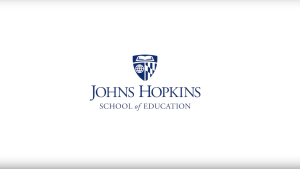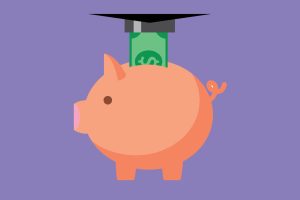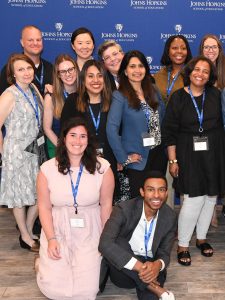Application Details
Prerequisites to Apply
Applicants to the program must hold a bachelor’s degree from an accredited college or university and have earned a minimum cumulative grade point average of 3.0 (on a 4.0 scale) in all previous undergraduate and graduate studies (including incomplete programs of study and for programs still in progress).
Application Requirements and Deadlines
| Master of Science in Counseling | ||
|---|---|---|
| Application Deadlines | January 28, 2026 | |
| Interview Dates | Admission to this master’s program requires a half-day interview. Applicants will be notified by the Counseling program if selected for an interview. | |
| Application Requirements | Online application form | |
| $80.00 application fee | ||
| Resume/CV | ||
| Two letters of recommendation | ||
| Official transcripts from all post-secondary institutions attended | ||
| Essay | Please upload your responses to the following prompts in an essay format adhering to these guidelines: -One essay 2 – 3 pages in length responding to all prompts -Double-spaced -Times New Roman font type -12-pt font size Essay Prompts 1. What personal and professional experiences could support or hinder you in becoming an effective Clinical Mental Health or School Counselor? 2. Provide an example of a professional job experience that was challenged by your supervisor or a colleague. How did you respond, manage the challenge, and receive feedback from a different perspective? All responses should be included in one essay. |
|
Tuition and Fees
Tuition and fees are subject to change for ensuing academic years and will be updated on the School of Education website accordingly.
Financial Support Options
The Johns Hopkins School of Education Counseling program awards merit-based scholarships to select students upon admission. We also offer a variety of financial aid options, including grants, federal loans, and work-study programs, to help you fund your education.
Admissions Webinar

More Information
Baltimore, MD 21209
Suite M-500
What to Expect
Program Outcome Data
For the 2023-2024 academic year, the Department of Counseling and Educational Studies had two master’s level concentrations in Clinical Mental Health Counseling and School Counseling. Student outcome data including number of graduates for the past academic year, pass rates on credentialing examinations, completion rates, and job placement rates are below.
| Degree/Specialty | # of Graduates | Completion Rate | Licensure of Certification Examination Pass Rate | Combined Employment | Admissions to Doctoral Programs |
|---|---|---|---|---|---|
| Master's Degree: All Tracks | 68 | No Data | No Data | ||
| MS: Clinical Mental Health Counseling | 59 | 89% | 100% (N=38) | No Data | No Data |
| MS: School Counseling | 7 | 70% | 100% (N=5) | No Data | No Data |
Programmatic Goals
- Facilitate students’ mastery of requisite knowledge, skills, and dispositions aligned with CACREP standards to deliver counseling services that embody social justice principles, advocacy, and multiculturalism and uphold the worth and human dignity of all clients from culturally diverse backgrounds.
- Support and encourage students to incorporate a developmental approach to promote client wellness across the life span.
- Facilitate students’ development of dispositions to serve as social justice advocates and leaders in the profession.
- Cultivate a collaborative learning atmosphere that incorporates cutting-edge research and excellent didactic and experiential instruction.
Program Objectives
- PO1 Graduates will demonstrate the skills and competencies to incorporate a developmental approach to promote student/client holistic well-being across the life span, inclusive of mental health, academic, social/emotional, cultural, and career goals. (CACREP F.3 Human Growth & Development, F.4 Career Development)
- PO2 Graduates will demonstrate the skills and competencies to serve as advocates and leaders in educational and/or mental health settings that value social justice principles, multiculturalism, human dignity, and the worth of all clients from culturally diverse backgrounds (CACREP F.2 Social & Cultural Diversity; 5.G. School Counseling)
- PO3 Graduates will demonstrate the skills and competencies to assess needs, develop goals, and counsel students/clients in educational and/or mental health settings from culturally diverse backgrounds. (CACREP F.5 Counseling & Helping Relationships; F.7 Assessment & Testing)
- PO4 Graduates will demonstrate the skills and competencies that reflect the knowledge, roles, and functions of the school and/or mental health counselor. (CACREP 5.C. Clinical Mental Health Counseling; 5.G. School Counseling)
- PO5 Graduates will demonstrate the skills and competencies to effectively facilitate group work with students/clients from diverse backgrounds in educational and mental health settings (CACREP F.6 Group Counseling & Group Work)
- PO6 Graduates will demonstrate the skills and competencies to develop equitable data-driven school counseling programs that meet the unique needs of student populations in educational settings. (CACREP F.8 Research & Program Evaluation; 5.G. School Counseling)
- PO7 Graduates will demonstrate the skills and competencies to develop, apply, and evaluate evidence-based practices that meet the developmental needs of students/clients from diverse backgrounds in educational and mental health settings. (CACREP F.8 Research and Program Evaluation; 5.G School Counseling; 5.C. Clinical Mental Health Counseling)
- PO8 Graduates will demonstrate the skills and competencies to work ethically, legally, and professionally in educational and/or mental health settings (CACREP F.1. Professional Counseling Orientation & Ethical Practice)
What is the difference between clinical counseling and clinical psychology?

Both clinical psychology and clinical mental health counseling support mental well-being, but differ in focus, training, and career paths.
Clinical psychologists assess and diagnose disorders, often using testing and research, and typically require a doctorate. Clinical mental health counselors help clients manage challenges like anxiety, grief, and relationships through therapy and coping tools.
How much is a master's degree in counseling?

The cost of a master's degree in counseling depends on a few factors.
The cost of a master's degree can vary depending on factors such as the institution, program duration, location, and whether your classes are online or on campus. On average, tuition for a master's degree in counseling ranges from $20,000 to $60,000, or more. At the Johns Hopkins School of Education, select students upon admission may be awarded merit-based scholarships. Resources for financial aid, loans, and other sources of funding are also available to help you navigate your finances.
How long is a master's degree in counseling?

The duration of a master’s degree in counseling depends on a few factors.
The duration of a master's degree in counseling can vary depending on factors like the program structure, full-time or part-time enrollment, and any required internships or clinical hours. On average, a master's in counseling can be completed in about 2 to 3 years of full-time study.
How do I become a licensed professional counselor?

All states require education, supervised experience, and a national exam to become a Licensed Professional Counselor (LPC), but specific requirements vary.
Most states require a master’s in counseling, like the MS in Counseling at Johns Hopkins, plus 2,000–3,000 supervised hours. While most use the NCE or NCMHCE, some also require state-specific exams covering local laws and ethics. Researching your state’s licensing board is essential to understand the exact steps to earn your LPC credential.
International Applicants
International students interested in applying to a program at the Johns Hopkins School of Education must follow the same application process and submit the same general application materials as their peers, along with some additional requirements. Optional Practical Training (OPT) permits eligible F-l students to work in their field of study in the United States for 12 to 36 months after completing their program. Most students studying on F-l visas become eligible for 12 months of Optional Practical Training (OPT) after applying for off-campus work authorization in their final year of study. F-l students with a classified degree in STEM—science, technology, engineering, or math—may be eligible for a 24-month extension. Please visit JHU’s Office of International Services OPT Information Resources for more information.
International Student Admissions
Please visit the International Student Admissions webpage for additional application requirements or information.


International Student Admissions
Please visit the International Student Admissions webpage for additional application requirements or information.

